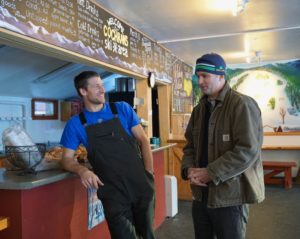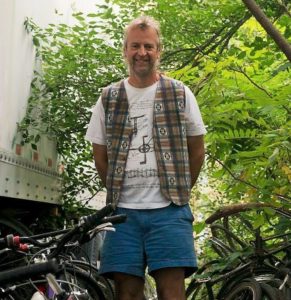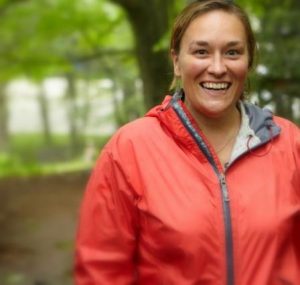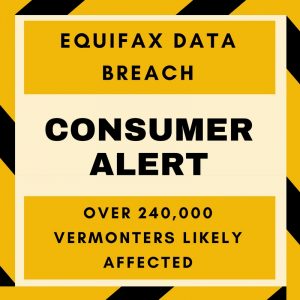This is a monthly series in which the Attorney General will feature a Vermonter doing exemplary work in their community. Have someone you think should be featured? Email AGO.CAP@vermont.gov.

Born in Burlington, Jimmy Cochran is the son of Bob Cochran, one of the “Skiing Cochrans” family of Richmond. Jimmy was on the U.S. Ski team from 2005-2009. He represented the U.S. in the Winter Olympics in 2006 and 2010, and in the World Championships in 2005, 2007, and 2009. Jimmy is now at the helm of Cochran’s, the nation’s first IRS 501 (c)(3) tax-exempt ski area, as general manager.
Cochran’s ski area was started by Mickey and Ginny Cochran in 1961 in the backyard of their property in Richmond. It hosts weekly races and training for eight local high schools, shares the hill with 800 kids from elementary school programs, facilitates races and training for the next generation of Olympic hopefuls in the Cochran Ski Club, and provides an approachable and accessible place for youngsters to learn to ski. As it says on their website, “No child will be denied the opportunity to ski or ride.”
What sets Cochran’s apart from other ski areas? What is the mission?
Cochran’s is unique as a non-profit ski area. Our mission is to provide affordable skiing and race training to local kids and families. This means that Cochran’s is directly supported by the community we serve. Pretty much everyone that skis or snowboards here has in some way given time or money. In this way we are really more of a co-op.
Many wonderful people have found little (and big) ways over the last 57 years to make this ski area go. My favorite thing about this place is how many different people are willing to get emotionally invested. Every day people show up look around, create and act on a vision that could be something like improving hiking and mountain bike trails, making snow, teaching kids to ski, fixing equipment, helping to run races, or making dinner for our Friday community ski night.
This support even comes from the bigger ski areas. They recognize that by helping Cochran’s introduce new folks to the sport, many of those families will graduate to a bigger mountain in a season or two. When we need a part for a broken snow-cat or a snowmaking pump dies (knock on wood), we have a huge network to call on.
The community impact primarily consists of kids and families being given the opportunity to be included in a predominantly exclusive sport.
What goes into a “Friday Community Ski Night”?
“Friday Night Lights” is our community ski night. $5 ticket, $12 dinner (kids $6), a dual slalom course and laps on the famously fast rope-tow. Dinner is made by a volunteer family/s. I’m always amazed at the culinary alchemy that occurs in our little snack bar.
How many kids/families have skied at Cochran’s for low or no cost?
Effectively everyone that skis at Cochran’s is skiing at low cost. 1/3rd of our yearly operating budget comes from donations and ALL capital improvements have been paid for with fundraising dollars. We also aim each year to provide at least 10% of passes, tickets, lessons, training fees to be free for deserving families.
What advice do you have for others looking to impact their community?
Don’t be afraid to ask for help, recognize that there is a ton of background work required for a volunteer to be productive, let things develop, change, and be imperfect as the situation merits, and most importantly… say thank-you thank-you thank-you thank-you thank-you.




